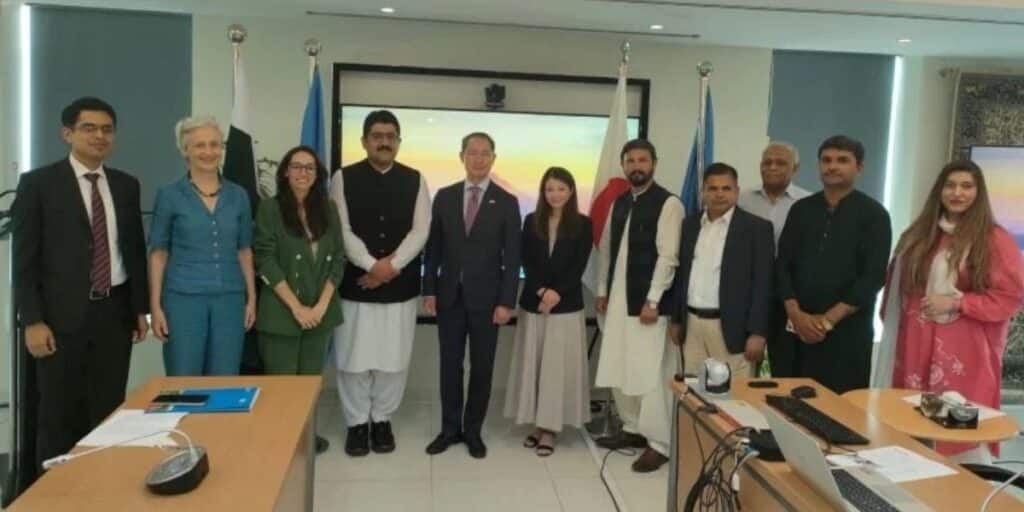ISLAMABAD: A major initiative by Japan and the Food and Agriculture Organization (FAO) of the United Nations has brought new hope to thousands of families in Sindh and Balochistan whose livelihoods were devastated by the catastrophic floods of 2022.
With generous funding of $6.48 million, the emergency recovery project has been successfully completed, paving the way for rehabilitation in regions once reduced to ruins.
In areas where farmlands had turned to wastelands and livestock were dying of hunger and disease, life is gradually returning.
Fields are once again turning green, plows are back in motion, and a renewed sense of hope is visible on the faces of the affected communities.
Farmers were provided with quality seeds, fertilizers, and agricultural tools to resume cultivation, while herders received fodder, livestock vaccines, and disaster preparedness training—equipping them to be more resilient and self-sufficient in the face of future challenges.
In the last two years, Balochistan has suffered severe flooding, particularly during the monsoon season of 2022, which was one of the deadliest in decades.
Torrential rains caused widespread destruction across multiple districts, washing away homes, farmlands, roads, and bridges.
Thousands were displaced, and the agricultural economy—already fragile—suffered immense losses. Livestock perished in large numbers, and food insecurity soared.
Despite recovery efforts, the region continues to face challenges related to infrastructure rebuilding, disease outbreaks, and economic rehabilitation.
ALSO READ: PDMA issues flood, landslide warnings across Pakistan
International assistance, including contributions from Japan and the UN, has been critical in supporting recovery and rebuilding efforts in these flood-hit areas.





